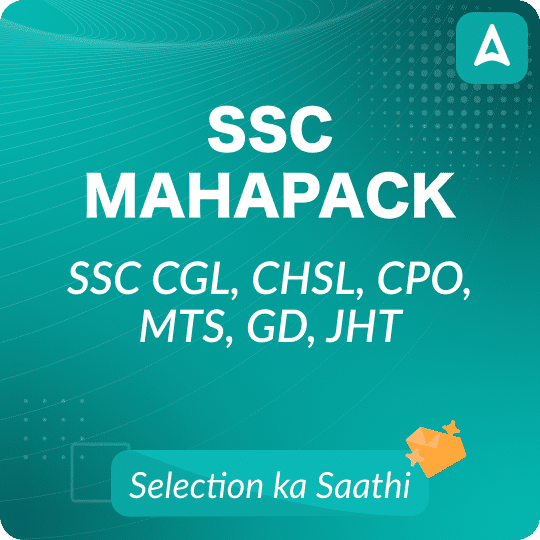How Hindi medium students can learn English for Government Exams?
Improving skills in the English language is not only important for qualifying exams but also for excelling in life. In this article, we have tried to take a look into what steps a Hindi medium aspirant can take to prepare for the English language section of various government competitive exams.
करत-करत अभ्यास के……..
Almost all of us are familiar with this Doha by the great poet वृन्द. It is based on the life story of the great Sanskrit scholar वरदराज and is the key to success for anyone in any field of life.
हिंदी भाषा
The education system of our country provides us the choice of selecting our medium of education and there are many vernacular education boards across different states. Hindi is one of our many native languages and holds a very important place in our identity as Indians. It has its roots in the beautiful language of Sanskrit. However, when candidates from Hindi medium boards prepare for government exams to secure jobs, they sometimes face some challenges in tackling the English language section.
सरकारी नौकरी
Securing a government job is the dream of many young people who belong to various vernacular backgrounds. However in almost every competitive exam, English is a common subject asked. It is designed to test the candidates’ aptitude in vocabulary, grammar, and comprehension.
For someone coming from a Hindi medium education background, it is not easy to transition into English as a subject and score high in the questions asked right away. Sometimes aspirants get very little time to prepare for an exam and sometimes there is plenty of time to follow a strategy and learn concepts from the basic level.
संभव है
Every year thousands of aspirants from different language backgrounds clear the exam. So it is quite possible to score well in English. There is a hidden advantage for the aspirants coming from a Hindi background. The candidate who is good in Hindi grammar can quickly adapt and absorb English grammar as both have some common features like Parts of speech, and subject-verb agreement and many of the words in the English language have their roots in Hindi as well as Sanskrit.
पैटर्न का विश्लेषण
To strategize for any subject in an exam it is necessary to go through the syllabus and previous year’s papers to understand the pattern and level of questions asked. If we consider an exam such as SSC CGL for example, the English Language section can be broadly divided into Vocabulary, Grammar, and Comprehension,
रणनीति
For vocabulary, there is no alternative to memorizing and revising. Having a good base of vocabulary will make English reading and writing much easier and it will also help in improving the comprehension section of the exam.
If a candidate doesn’t have plenty of time to prepare, he/she can learn grammar which is sufficient for the exam by going through and analyzing the questions asked in the previous years. Learning the rules of grammar from the detailed solutions of the previous year’s questions can help clarify the doubts.
However, if a candidate has plenty of time to prepare for the exam and is facing difficulties in learning all the rules of grammar, one way is to practice translation from Hindi to English. Learning how to translate helps the aspirant build a sense of recognizing patterns and selecting the correct sentence from given options in the exam as it instills an intuitive understanding of the English language. For practicing translation it is advisable to use one book and go through it multiple times.
To make the comprehension part stronger, one option is to read a standard textbook in both Hindi as well as English. For example, let us assume that an aspirant is preparing for the General Awareness section and has to go through textbooks, If he/she reads a chapter from a history NCERT in Hindi, reading it again in English not only solidifies the facts learned, it also helps the aspirant improve their comprehension as well as vocabulary skills.
Reading the same piece of news in both the languages of the same publication and listening to All India Radio news in Hindi and English are some additional ways to add more value to the learning process.
All this is easier said than done. The main key to bridging the gap between Hindi and English is practice and patience. It may seem that English medium candidates have an advantage over Hindi medium candidates but in a national-level competitive exam, what ultimately makes a difference is ‘ who is more willing to work on his/her weaknesses and turn them into strengths?’




 SSC Calendar 2025 Under Review, Revised ...
SSC Calendar 2025 Under Review, Revised ...
 Upcoming Government Exams, Complete Govt...
Upcoming Government Exams, Complete Govt...
 Govt Jobs 2025, Latest Upcoming Governme...
Govt Jobs 2025, Latest Upcoming Governme...


